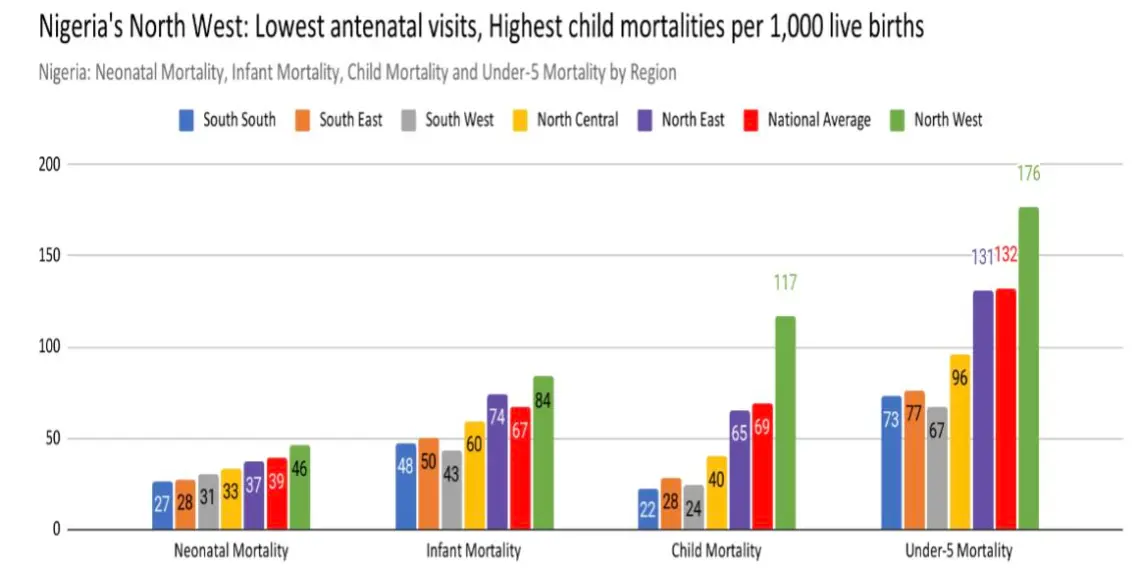Women in the northern states of Nigeria do receive less antenatal care when they are pregnant, unlike the majority of their peers in southern parts of the country, a 2020 Statistical Report on Women and Men by the National Bureau of Statistics (NBS) shows.
According to the World Health Organisation (WHO), every pregnant woman should have at least four(4) antenatal care (ANC) visits to the hospital. The first visit is expected during the 8th to 12th week of the pregnancy. Then, between the 24th to 26th week for the second visit, 32th week for the third visit and 36th to 38th week for the fourth visit. This is to improve the outcome of pregnancy and the health of the newborn.
On the average, 56.8% of women in Nigeria visit the hospital for their antenatal care at least four times during pregnancy. 15 out of the 20 northern states have fewer proportion of their women attending antenatal clinics than this national average. All the North west states, particularly, fall within this category.
-1708876917.png)
According to the WHO, “antenatal care is a vehicle for multiple interventions and Programmes”. One of these interventions is the “prevention and case management of maternal malaria”, which threatens “at least 25 million pregnancies each year, resulting in an estimated 2 to 15 percent of maternal anaemia.
Maternal anaemia of the mother, besides other undetected and untreated conditions in the mother, contributes “to low birth weight (LBW) and preterm birth, which lead to higher infant mortality and impaired development of the child. Maternal malaria infection alone “accounts for almost 30 percent of all the causes of LBW that can be prevented during pregnancy.”, according to the WHO.
Thus, the babies of women who miss out on adequate antenatal care are more likely to suffer neonatal mortality (the death of a baby within 28 days of life) or infant mortality (the death of a baby within a year of life).
Nigeria’s northwest region has the lowest record of visits for antenatal care, which has affected her maternal mortality rate and child mortality rate – from neonatal death rate to the under-5 years death rate. Also the northwest has the lowest delivery facility (16%), and the highest rate of child mortality for both under 5years and neonatal.
-1708876877.png)
An antenatal care visit is not only to monitor the mother and the fetus and to check for potential complications. It also provides women information about needed nutrition and health during pregnancy and breastfeeding. It also allows healthcare providers to manage infection as well as obstetric complications.
In addition, during the ANC visit, the pregnant woman is given needed immunisation, medication and supplements. Women also receive education on health behaviors during pregnancy, pregnancy danger signs, and information on family planning during their ANC visit.
Record has shown that there are enough health facilities in the northern part of the country but due to negligence, bad roads, long distances, difficulty in transportation and lack of funds, women in the north have not been going for at least four antenatal care visits.
Other reasons are perception relating to poor quality care – long waiting times, inadequate drugs and consumables, insufficient skilled health workers, facilities not always open, workers not always in the facilities, and abusive skilled workers. Others are misinterpretation of signs during pregnancy complications, compromising partner support, inability to pay for services even when costs are low, and unplanned payment charged by staff.



-1708876917.png)
-1708876877.png)